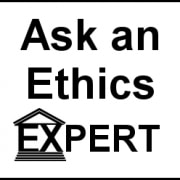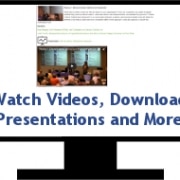How to Have Better Conversations About Ethics in Business

It is often difficult, many people would agree, to talk about ethics in business. But why? It’s not because people don’t know what ethics is. Most of us understand that ethics is simply the systematic thought about what is good or bad, how to live a good life, and how we should live together. These are maybe the most important questions that we all have to answer, in some way, for ourselves. So raising these questions in the business world, you might think, shouldn’t seem like a particularly challenging thing to do. And yet it is.
I think there are a few reasons for this. Understanding them will help us have better conversations about ethics in business. To help spark more effective and, perhaps most importantly, fun, discussions of ethics in business, we want to propose a tool, something that I think will make a great ethics-conversation icebreaker. But first, let’s talk about why that tool is necessary at all.
Being confronted with ethical rules in our adult professional lives can easily feel like being reduced to our child self.
People can be reluctant to talk ethics in business simply because there are no clear-cut answers to big questions like how you balance growth and social impact, incentivize customers to buy your products, and maintain consistent corporate values while operating globally in many different cultures. This can easily create feelings of uncertainty and ambiguity. In business, however, it is important to minimize ambiguity and uncertainty. Managers have learned to do this with strategic planning and risk management, for example. But for the ethical dimension of their decision-making, this preparation is often missing, and this makes them feel uncomfortable and vulnerable and, thus, reluctant to deal with these questions.
There’s also the emotional baggage the word “ethics” seems to carry. For many people, being ethical means that you must be 100 percent good all the time. That is, of course, impossible, because humans are never ethically perfect, and it is human to not always get everything right. We all have our weak moments, and we are under pressures that can keep us from staying true to our values, like time and performance goals, lack of attention, or competition. This expectation of moral perfection can easily create feelings of guilt and the fear of being judged as an unethical person. The scientific term for this is “moral identity threat.”
People also might prefer to avoid talking about ethics out of a fear of being blamed for something. Here we’re drawing inspiration from transactional analysis. This psychoanalytical theory states that we all communicate in different ego states: parent-like, child-like or adult-like. Successful communication only happens if the participants in a communicative transaction react on a complementary level: That is, if you are sending a parent-to-child message, the receiver must accept being in the child position. Otherwise, the communication can threaten the relationship.
For example, if I see myself as an adult and somebody talks to me like they’re my parent, I react resentfully, because I do not feel like I’m being taken seriously. Since we first encounter ethical ideas and standards as children, being confronted with ethical rules in our adult professional lives can easily feel like being reduced to our child self, and we instinctively resist that as inappropriate patronizing.
What can be done about this?
Subscribe to the Ethical Systems newsletter
The first step is to make conversations about ethics in business safe, interesting, and normal. Very often the only time people hear about business ethics is when there is a scandal, or the signs of one. It is much more effective to have a conversation about ethics when things are fine. This lets people experience that talking about ethics is safe and useful.
It is a bit like couples therapy—very often if you start it, when your marriage is already in crisis, it might be too late. Normalizing “ethics talks” in a non-threatening and fun way, as part of your normal work life, helps to avoid this. In our experience, once this arises people actually don’t want to stop talking about ethical questions! It’s no wonder: They all face these challenges, after all, and so are relieved to finally have an opportunity to openly discuss them without fear of judgment.
Not incidentally, this helps to build the skills and the practice to deal with ethical questions, and thus reduces the feelings of uncertainty and ambiguity. Like with any other skill, practice makes the difference. If you have experienced discussions around ethical decision-making before, you know that even if there might not be the perfect solution, having an open exchange of arguments, and arriving at an informed decision, is always better than just hoping that the problem will go away—because it rarely does.
The best way of talking ethics in business is to frame it as a conversation among adults. Too often communications around ethics and compliance in companies come across as patronizing. This can be avoided by giving room for openly asking questions and having informal discussions around ethics instead of only imposing ready-made rules and procedures.
This is where our ethics icebreaker comes in. We want to provide people with a playful tool to initiate fun, inspiring, and thought-provoking discussion on ethics, leadership, compliance, and values. The idea is to produce a set of cards with conversation-starters that can be used for corporate events, team meetings, networking events, or even during a coffee break.
We already have a set of prompts and would love to get some input from our community.
We can’t wait to see your ideas!
We’ll share some of our favorite questions from readers on social media.
Here are some questions we already came up with:
- What was your most inspiring work experience?
- What was your most difficult work experience?
- What are your company’s values? Do they inspire you?
- How do your personal values differ from your company values?
- Did you ever have a boss that was an ethical leader? What did he/she do?
Bettina Palazzo is a business ethics consultant who helps organizations improve their integrity culture and bring new and fresh perspectives to their compliance and ethics management.
Alison Taylor is the Executive Director of Ethical Systems.
Lead image: Gerd Altmann / Pixabay









